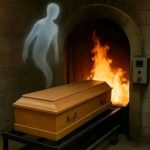Born John Michael Osbourne on December 3, 1948, in the working-class suburb of Marston Green, Warwickshire, England, Ozzy’s early life was far from the spotlight.
Raised in a cramped council house amid the industrial grit of post-war Britain, he struggled with dyslexia and a penchant for mischief that landed him in prison for burglary as a teen. But it was in the smoky pubs and garages of Birmingham where fate intervened. In 1968, he co-founded Black Sabbath with guitarist Tony Iommi, bassist Geezer Butler, and drummer Bill Ward. Their self-titled debut album in 1970 unleashed a seismic shift in music—dark, brooding tracks like “Black Sabbath” and “Iron Man” that birthed heavy metal, drawing from horror films, war horrors, and Ozzy’s own haunted psyche.
The band’s rise was meteoric, but so were the excesses. Ozzy’s onstage antics—biting the head off a bat (mistakenly thought to be rubber), snorting ants with Mötley Crüe—cemented his reputation as rock’s wild child. Fired from Black Sabbath in 1979 amid substance abuse struggles, he reinvented himself as a solo artist with albums like Blizzard of Ozz (1980), featuring hits such as “Crazy Train” and “Mr. Crowley.” Backed by guitar virtuoso Randy Rhoads, whose tragic death in a 1982 plane crash nearly derailed him, Ozzy persisted, selling over 100 million albums worldwide and earning a spot in the Rock and Roll Hall of Fame.
2 sources He leaves behind Sharon, his manager and wife of over 40 years, their children, and a world forever altered by his growl. As fans light candles and blast “No More Tears,” one thing is certain: the Prince of Darkness may have faded, but his shadow looms eternal in the halls of rock immortality.

